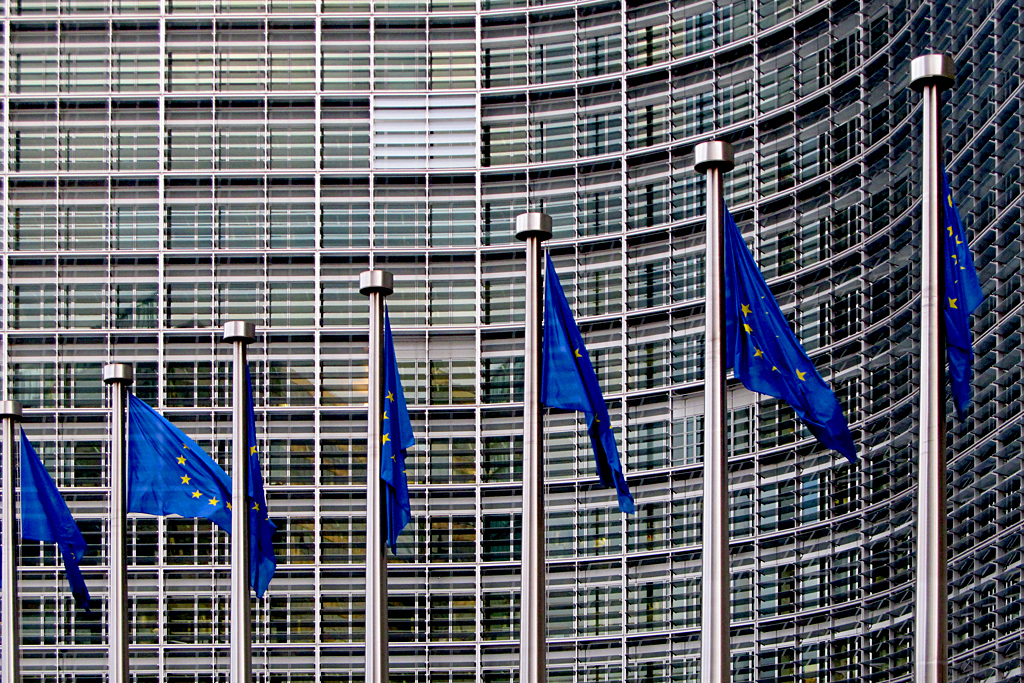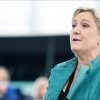The year 2016 is a thing of the past, a historic (not in the good sense of the word) one for the process of integration: for the first time, and as a consequence of the referendum of 23 June, a member has decided to leave the club. This was when British voters decided not to confront globalisation in the company of the continent. They preferred to isolate themselves. The year 2016 also saw other referendums in the EU, which followed the same pattern of rejection: in the Netherlands on the Association Agreement with Ukraine and in Hungary in relation to the compulsory nature of refugee quotas. Last year also consolidated the about-turn in EU priorities, placing security (terrorism, the refugee crisis, management of borders and conflicts abroad) at the top of the political agenda, while at the same time strengthening the intergovernmental vision of the EU, given the increasingly prominent role of the European Council, not least in the period of reflection following Brexit.
The new year is even more challenging for the EU. Adding to concerns about terrorism, the handling of the refugee crisis and existing economic risks, there is the delicate management of the UK’s departure, the unpredictability of the new US President and, above all, an electoral calendar that offers no let-up. Elections are set to be held in at least the Czech Republic and three of the EU’s founding states (the Netherlands, France and Germany, which may be joined by an Italy embroiled in an internal crisis following Matteo Renzi’s resignation), to a large extent determining where the EU heads next. Especially important is the case of France, where all the polls suggest that the National Front candidate, Marine Le Pen, will make it through to the second round of the presidential elections. If she emerges as the winner, the blow to the EU could be mortal. Nor are the consequences that could stem from strong showings by Geert Wilders in the Netherlands or the AfD in Germany exactly negligible, although in both cases it is hard to imagine a scenario in which such populist and Eurosceptical forces could take the reins of power.
Over the course of 2017 a close eye will need to be kept on the process of reflection begun by the member states in the wake of the British referendum and launched with the Bratislava Declaration, after a summer break full of meetings; the leaders present at Bratislava reiterated their commitment to establishing clear red lines with the UK, which would henceforth include not embarking upon withdrawal negotiations until Theresa May chooses to trigger Article 50 of the EU Treaty (something she has promised to do before the end of March), and the indissoluble nature of the EU’s four basic freedoms, including the free movement of workers. These negotiations will undoubtedly be followed extremely closely in Spain, not only because of the importance of the bilateral relationship in purely economic terms but because of the considerable ties than join the two countries together (the unresolved dispute over Gibraltar notwithstanding).
Nor should it be forgotten that the procedure known as the ‘Rule of Law Mechanism’, triggered last year by the European Commission in an attempt to control the illiberal direction that Poland is taking, remains in force. The Commission’s recommendation from last summer was joined by a complementary recommendation in December that gives the Polish government two months to respond. If it fails to do so, activation of Article 7 of the Treaty of the EU, which may even lead to Poland losing its voting rights on the Council, cannot be ruled out. Moreover, 2017 will once again see attempts to make headway on the effective handling of the refugee crisis, after a year in which perhaps the most notable events were the controversial agreement with Turkey –which sought to close off the Aegean migration route (something it achieved, given that the number of undocumented immigrants fell 72%, although at the same time the indices of mortality in the Mediterranean climbed by an alarming 38%)– and the agreement to create the European Border and Coast Guard Agency. The success of both projects will fundamentally rely on the member states’ commitment to European values.
“The EU should take advantage of Trump’s arrival to make headway in the security and defence arena that makes it less dependent”
Other matters will similarly take on importance in 2017. The advent of Donald Trump as US President imbues relations between the US and the EU with uncertainty, and the NATO framework too. The great initiative that the two trading powers have embarked upon in recent years is the Transatlantic Trade and Investment Partnership (TTIP). Trump’s criticisms of American trade policy (together with the doubts expressed by European civil society) make it unlikely that the agreement will be sealed. In any case the EU should take advantage of Trump’s arrival to make headway in the security and defence arena that makes it less dependent on its American partners, while simultaneously turning the new context into a real opportunity to get the most out of the EU Global Strategy, recently endorsed under the leadership of the High Representative for Foreign Affairs and Security Policy, Federica Mogherini.
In foreign affairs it is important not to overlook the policy of enlarging the EU, where there has been a foreseeable lack of major developments recently, with the exception of the recommendation to start negotiations with Albania. The withdrawal of the British, traditional supporters of EU enlargement, could complicate the prospects of the Balkan states even further. There are risks here however for the EU too, which must handle the situation deftly, given Russia’s interests in the region and the demonstration that it will not hesitate to try to destabilise European interests in places such as Montenegro, Serbia and Bosnia. Meanwhile Turkey’s prospects of joining the club become more fraught by the minute, even more so after the failed coup d’état that led to the further radicalisation of President Erdoğan, who has gone so far as to talk about a possible reintroduction of the death penalty. If this should happen, it would lead almost automatically to Turkey leaving the accession process.
For all the reasons set out above, the EU confronts in 2017 one of the most challenging times it has faced, coinciding with events to celebrate the 60th anniversary of the Treaty of Rome. Both internal challenges (managing Brexit, administering the Rule of Law Mechanism on one of its members, a round of elections characterised by the hopeful prospects of Eurosceptics and a process of uncertain reflection on the future of integration) and external challenges (redefining the transatlantic relationship following Trump’s victory, the growing assertiveness of Putin’s Russia, not least in the Balkans, and the handling of the refugee crisis, including the much-needed end to the war in Syria and cooperation with Turkey to stem migrant flows) will probably mark a ‘before’ and ‘after’ in the process of integration. Up to now, albeit with difficulties, the EU has been able to surmount its hurdles. Those of 2017 will not be any less high.



